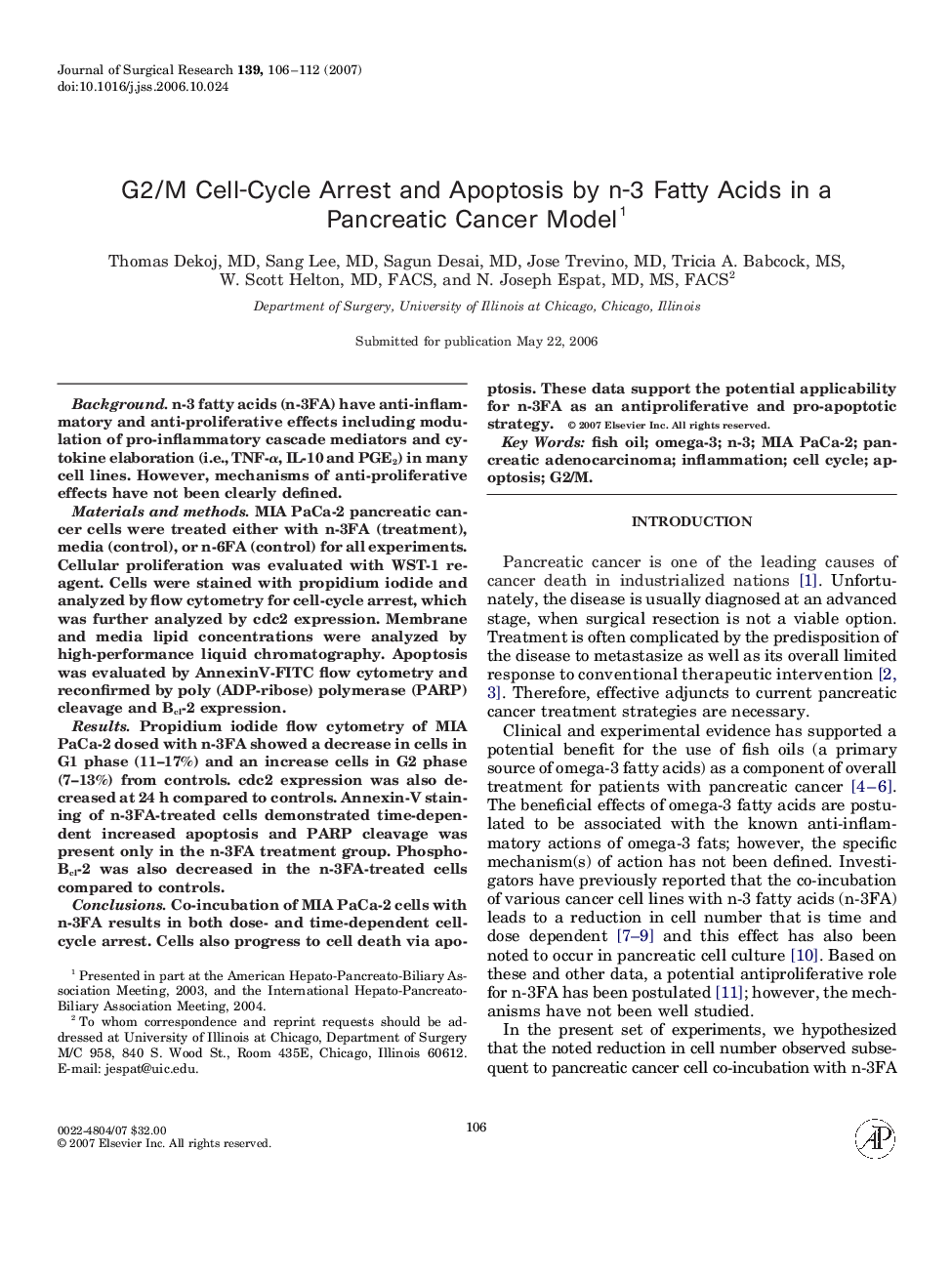| Article ID | Journal | Published Year | Pages | File Type |
|---|---|---|---|---|
| 4304997 | Journal of Surgical Research | 2007 | 7 Pages |
Backgroundn-3 fatty acids (n-3FA) have anti-inflammatory and anti-proliferative effects including modulation of pro-inflammatory cascade mediators and cytokine elaboration (i.e., TNF-α, IL-10 and PGE2) in many cell lines. However, mechanisms of anti-proliferative effects have not been clearly defined.Materials and methodsMIA PaCa-2 pancreatic cancer cells were treated either with n-3FA (treatment), media (control), or n-6FA (control) for all experiments. Cellular proliferation was evaluated with WST-1 reagent. Cells were stained with propidium iodide and analyzed by flow cytometry for cell-cycle arrest, which was further analyzed by cdc2 expression. Membrane and media lipid concentrations were analyzed by high-performance liquid chromatography. Apoptosis was evaluated by AnnexinV-FITC flow cytometry and reconfirmed by poly (ADP-ribose) polymerase (PARP) cleavage and Bcl-2 expression.ResultsPropidium iodide flow cytometry of MIA PaCa-2 dosed with n-3FA showed a decrease in cells in G1 phase (11–17%) and an increase cells in G2 phase (7–13%) from controls. cdc2 expression was also decreased at 24 h compared to controls. Annexin-V staining of n-3FA-treated cells demonstrated time-dependent increased apoptosis and PARP cleavage was present only in the n-3FA treatment group. Phospho-Bcl-2 was also decreased in the n-3FA-treated cells compared to controls.ConclusionsCo-incubation of MIA PaCa-2 cells with n-3FA results in both dose- and time-dependent cell-cycle arrest. Cells also progress to cell death via apoptosis. These data support the potential applicability for n-3FA as an antiproliferative and pro-apoptotic strategy.
